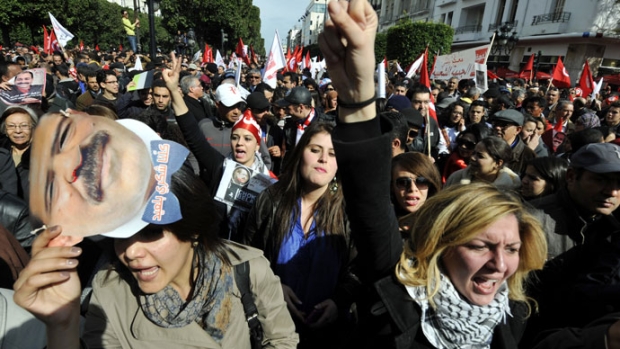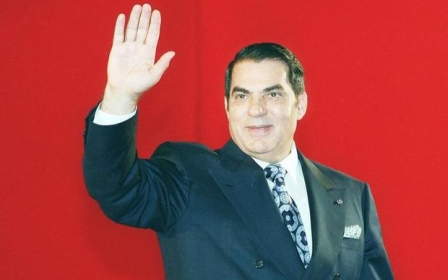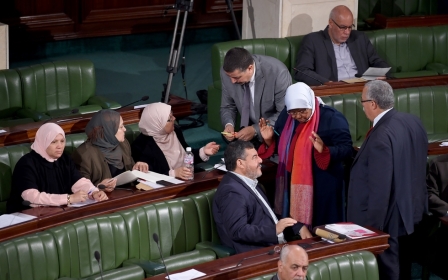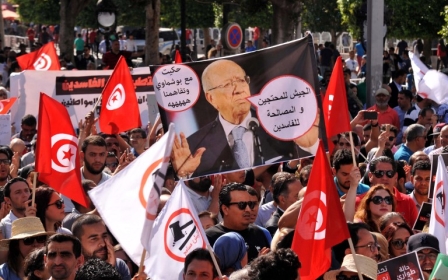Egypt coup plotters tried to overthrow Tunisian democracy, says ex-president
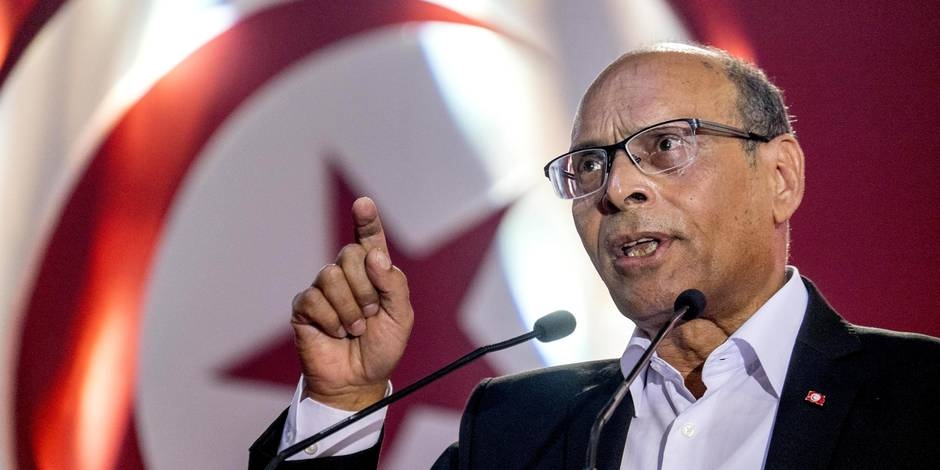
Tunisia’s democratic transition was nearly "liquidated" by the same forces behind the Egyptian coup, former president Mohamed Moncef Marzouki has alleged.
Marzouki said that the operation, which worked to thwart the Egyptian revolution, is the same one which tried to destroy the Tunisian democratic process, stating it was "the same mastermind using the same tools, rhetoric and style".
In a televised interview aired by Al Jazeera on Sunday, Marzouki - who was elected president between 2011 and 2014 - said that "the deep state in Tunisia tried to repeat the coup d'etat on the revolution that succeeded in Egypt”.
Egypt's first democratically elected president, Mohamed Morsi of the Muslim Brotherhood, was ousted by a coup led by then-general - now president - Abdel Fattah al-Sisi in July 2013, following mass protests against his rule. Saudi Arabia and the United Arab Emirates provided billions in financial aid to the new regime in the aftermath.
Motives behind assassination
Marzouki also spoke of the period leading up to the assassination of Tunisian opposition leader Chokri Belaid in February 2013. He said it was strategically timed to derail parliament’s efforts to pass a bill that would have excluded figures from former president Zine El Abidine Ben Ali’s government from running for elections.
I am almost-certain that [external forces] were involved in this assassination
Mohamed Moncef Marzouki, former Tunisian president
“One or two days before the assassination happened, there was a bill proposed to parliament that would have excluded figures from the previous regime from running in the elections… we can tie this assassination to the later killing of the martyr [Mohamed] Brahmi,” Marzouki said.
“It was also the same type of operation; we were within days of passing the new constitution and then his assassination happened.”
Marzouki went on to claim that the immediate calls to end the mandate of the coalition government that followed the killings “clearly showed that the intended target of the assassinations was the coalition government itself”.
He also revealed that the defence minister at the time, Abdelkarim Zebidi, who had served during the previous rule of Ben Ali, had given a military helicopter to a television channel to film the demonstrations.
This move was described by Marzouki as a “cinematic” attempt to portray the inflated number of protesters in the same fashion as the Egyptian coup. It was done without the permission of Marzouki, who, as president was also the commander-in-chief of the armed forces.
Speech not broadcast
On 6 February 2013, the day that Chokri Belaid was assassinated in Tunis, Marzouki was due to give a speech at the European Parliament. Although the speech was well-received, leaving many European parliamentarians in tears, Tunisian television refused to broadcast it.
Describing his reactions on that day, Marzouki “felt that there were attempts to start the liquidation of the Tunisian revolution”.
The same operations room that worked on the Egypt also worked on Tunisia; it was the same techniques by the same mastermind
Mohamed Moncef Marzouki, former Tunisian president
He said the refusal of Tunisian media to broadcast the speech could only be attributed by the “tentacles of the ousted president”, which were present everywhere, he said, referring to Ben Ali, who sought exile in Saudi Arabia, where he is still based.
“Even my speech at the United Nations was not broadcast,” he added.
Marzouki said that the Tunisian media at the time was almost entirely owned by the former regime, so the news bulletins were used, he believes, to mobilise public opinion against the president and the revolution. In a Carnegie paper published in 2012, it stated that despite the revolution of 2011, "the Tunisian media is still a venue for manipulation, intimidation, and bias".
He said that in 2013, the "deep state" remained in control of the state, and the government was weak and unable to take decisive decisions to counter this.
"When you reach these positions, the state has been in existence for decades and change is difficult under the state's deep control," Marzouki said, adding that “whoever governs the country is not the person who sits in the presidential post, but those who hold administrative roles”.
Marzouki, who was elected as the Tunisian republic’s fourth president from 2011 until 2014, made the claims in an interview for Al Jazeera.
He remains involved in political activism: he was arrested and deported by Israeli authorities in 2015 after he participated in a flotilla to defy the Gaza blockade.
New MEE newsletter: Jerusalem Dispatch
Sign up to get the latest insights and analysis on Israel-Palestine, alongside Turkey Unpacked and other MEE newsletters
Middle East Eye delivers independent and unrivalled coverage and analysis of the Middle East, North Africa and beyond. To learn more about republishing this content and the associated fees, please fill out this form. More about MEE can be found here.


